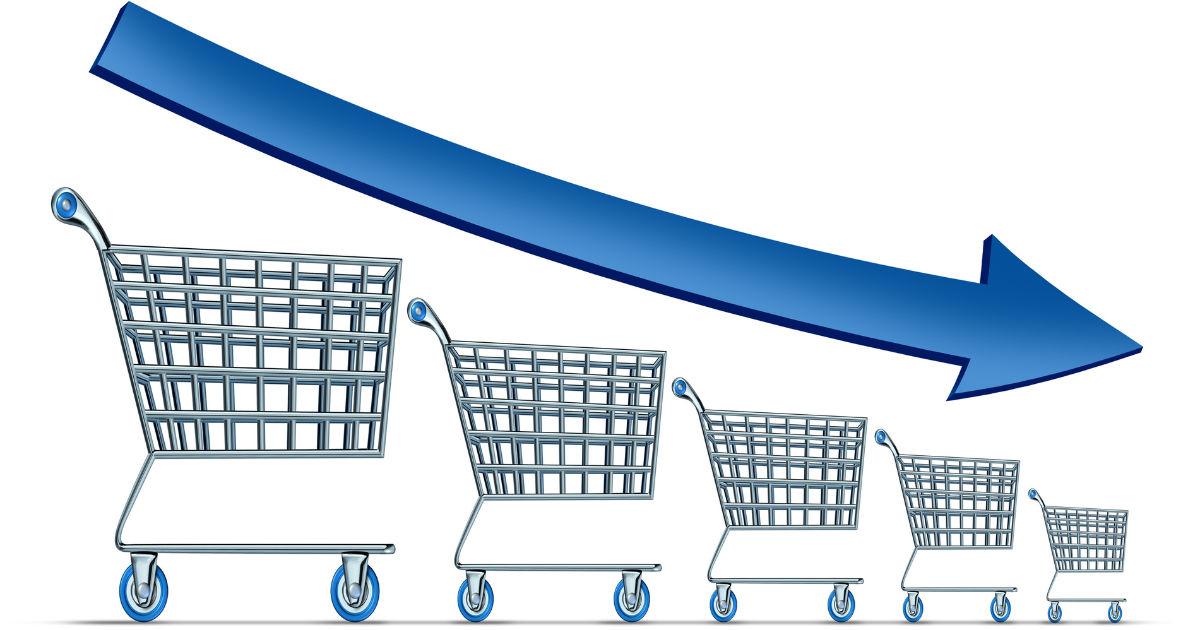
©wildpixel via Canva.com
US Retail Spending Dips in October Amid Record Interest Rates
November 15, 2023
For the first time since March, American retail expenditure witnessed a downturn in October amidst soaring interest rates higher than anything we’ve seen for over two decades.
The Commerce Department revealed on Wednesday that retail sales, while adjusted for seasonal trends but not for inflation, dropped by 0.1% in October from September. Despite being the first recorded monthly decrease since March, the dip was smaller than predicted by economists. October’s fall in consumer spending could be an early indication of a sluggish economy. Higher borrowing costs, coupled with mounting credit card debt, are putting a squeeze on American consumers.
Big-Ticket Sales Decline
The decrease in October’s sales was partially attributed to a slump in sales of some high-value commodities. For instance, there was a 1.1% decrease in car purchases from September to October, with furniture sales seeing a drop of 2% over the same period. Durable goods, items designed to last a minimum of three years, which are frequently bought on credit, also experienced a slide in sales.
Nevertheless, spending in restaurants and supermarkets maintained a reasonable pace, with an increase of 0.3% and 0.7%, respectively, in October.
Federal Reserve’s Measures To Control High Inflation
To counter high inflation, the Federal Reserve has hiked interest rates 11 times since March 2022, putting the brakes on the rampant inflation that peaked last year at a level not seen in four decades.
Following a summer of powerful economic growth, Federal Reserve Chair Jerome Powell, along with other central bank officials, have communicated the necessity for the economy to further decelerate to ensure inflation aligns with the 2% target.
The Positive Ramifications
The recent retail sales report presents a promising outlook for the Federal Reserve since it indicates that consumer spending is neither stubbornly strong nor rapidly accelerating. Furthermore, the decline is moderate, suggesting there isn’t any immediate sign of significant economic frailty.
Despite economic uncertainties, American consumer behavior in areas like the Magnificent Mile shopping district in Chicago and at popular department stores like Bloomingdale’s suggests resilience. As such, many believe that American consumers still possess the financial capacity to keep the wheels of economic expansion turning.
Recent News
Ice Cream Listeria Recall: What We Know
Thirteen ice cream brands are affected by the listeria recall.
Bimbo Bakeries FDA Warning: What We Know
Bimbo is one of America’s most popular bakery brands.
Toys ‘R’ Us Unveils AI-Powered Promo with OpenAI’s Sora
Last week at the Cannes Lions International Festival for Creativity, Toys “R” Us showcased a mini promo film made predominantly using OpenAI’s text-to-video tool, Sora.
Netflix Series ‘Stranger Things’ to Take Center Stage at Six Flags’ Fright Fest
Six Flags is ramping up for this year’s Fright Fest with major partnerships in place. The theme park has announced collaborations with Netflix, Warner Bros., Lionsgate, and Legendary for its Halloween event at its venues across the U.S.
